Journal Boards
Editor in Chief

Erhan Akkas is currently an assistant professor at Sakarya University in Turkey. He graduated from Durham University with a Ph.D. in Islamic economics and finance in 2019, after obtaining his master’s in political economy from the University of Sussex. Akkas was a visiting research fellow at Durham University Business School as well as a lecturer at Agri Ibrahim Cecen University in Turkey between 2020 and 2022. An associate professorship was granted to him in February 2023 by the Turkish Interuniversity Board (ÜAK). Akkas has written many academic papers, policy briefs, and edited books. Akkas' most recent research focuses on political economy, Islamic economics, Islamic finance, economic develpment, and GCC countries.
Editorial Board
Adam Abdullah is currently Professor at the College of Economics and Management, Al-Qasimia University, U.A.E. He was the former Deputy Dean (Research & Publications) at the International Islamic University Malaysia (IIUM) Institute of Islamic Banking and Finance (IIiBF). He holds a PhD in (Islamic) Economics from University Malaysia Terengganu (UMT) and was awarded best PhD prize (2012). He specializes in Islamic economics, finance and investment, and has published over 65 articles and books. He has written extensively on Islamic monetary economics, publishing The Islamic Currency (2016), which included an analysis of monetary performance over 1,300 years involving gold, silver and commodity price data in Egypt, Ottoman-Turkey, England, America and Malaysia. He has presented at a number of international conferences, including as guest speaker. He has also supervised a number of PhD and Masters students in Islamic economics, finance, banking.
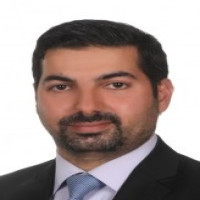
Ahmet Suayb Gundogdu is a professor in Istanbul Sabahattin Zaim University and a senior professional at the Islamic Development Bank where he has been employed since 2008. Before joining the bank, he was pursuing his PhD in Economics at Virginia Tech, USA. He holds a BA in International Trade from Bogazici University and an MA in International Development from the International University of Japan. He completed his PhD in Islamic Finance at Durham University, UK.
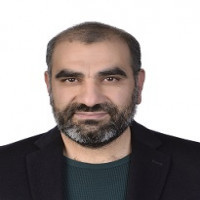

Alija Avdukic is currently a Professor in Islamic Economics and Finance at Al- Maktoum College of Higher Education and is the deputy director of Ph.D. & MSc Islamic Finance programs at Business School of the University of Dundee. Alija holds a Ph.D. in Islamic Economics and Finance (2016) from Durham University; and has MA in Islamic Banking, Finance and Management (2010) from Gloucestershire University. Alija completed his BA (2003) and PGDip (2007) from Al-Azhar University, Cairo, and Damascus University, Damascus.
Alija’s research interest in Islamic economics and its various articulations, Islamic moral and political economy, and Islamic finance and banking. Alija teaches and supervises research on Islamic political and moral economy, Islamic banking, finance, and the political economy of development in the Muslim world. Alija’s recent research includes the construction of Islamic moral economy and Islamic political economy, both of which is considered as an incomplete project since the early 1970s. Secondly, Alija develops the discourse around the ‘social and developmental failure’ of Islamic banking and finance in relation to the expressed ideals of Islamic moral economy by essentializing sharing and collaborative economy nature of Islamic finance. Alija is also involved in empirical research in various aspects and dynamism of Islamic banking and finance.
Amal Essayem is currently an assistant professor at Marmara University in Turkey. She graduated from Tunis University, specifically the Higher Institute of Management of Tunis (ISG Tunis), with a degree in Finance. She then obtained her Master of Science in Finance from the same institute (ISG Tunis). Subsequently, Amal completed her Ph.D. in Islamic Economics and Finance from Sakarya University in Turkey. Her research focuses on financial technologies, financial markets, Islamic finance, and the GCC region. Her broader interests include Economic Anthropology, Economic Sociology, and Political Economy.
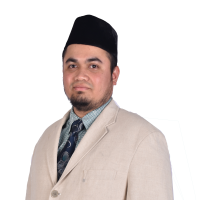
Dr. Amirul Haqeem bin Abd. Ghani IFP®, CQIF, joined Durham University as a Doctoral Student in October 2014 at Doctoral Training Centre in Islamic Finance, the same year in 2014 he was awarded Islamic Financial Planner (IFP) professional certificate and gained his Doctorate in May 2019. Prior to his academic career as a Senior Lecturer in Universiti Utara Malaysia (UUM), Haqeem, a graduate of Dundee University worked at Kuwait Finance House Malaysia as a professional banker. He is the Old Putra (OP) of Royal Military College (RMC). In February 2021 he finally awarded Certified Qualification in Islamic Finance (CQIF-Wealth Management) after completing all modules by IBFIM.
Externally, he teaches practitioner for Islamic Financial Planner. He is a trainer for Islamic Financial Planner by IBFIM-UUM collaboration since 2018 and still serving as a trainer every year for the university . He teaches and trained IFP candidate in all area especially case study from A to Z (Cash Flow, Networth statement, Risk management, Islamic Investment for Hajj and Education and Estate planning) Haqeem currently exploring the financial literacy, social disclosure, environmental reporting, green sustainability, and social impact of Islamic banks for his research interest. Haqeem ambition is to explore the accountability of Islamic banks and banks in general to seek evidence from its social reporting. In another route, Haqeem interested in the value of sincerity and responsibility that should be signalled by Islamic banks. With regards to holistic student development agenda, he had served two terms (2013-2014) as assistant principal at Telecom Malaysia residential hall advising and monitoring student development activities and currently served as assistant principalfor Student Residential Hall Malaysia Airlines, UUM for six terms(2019-present).
Teaching: Islamic Financial Planning (2019,2024); Islamic Accounting (2019-2020,2023); Risk Management and Takaful Planning (2021-2023), Regulation and Shariah Governance for Islamic Financial Institution (2020-2021) , Islamic Investment (2020-2021), Module Developer and Trainer for Chartered Institute of Islamic Finance Professional -Enterprise Risk Management (2020), Islamic Credit Analysis and Financing (2024)
Diploma in Banking, UiTM;
Bac. (Hon) Islamic Banking (1st-Class, Vice-Chancellor Award) UiTM;
MSc. Islamic Accounting & Finance, University of Dundee Scotland;
PhD in Islamic Finance, Durham University England;
Islamic Financial Planner (IFP) 2014, Certified Qualification in Islamic Finance (CQIF) 2021
Banjaran Surya Indrastomo is currently a lecturer at Islamic economics program, Faculty of Economics and Business, University of Indonesia and a member of Board Advisor, Business Risk and Finance Working Group, School of Business and Management, Bandung Institute of Technology in Indonesia. He earned his Ph.D in Islamic economics and finance from Durham University in 2019, after obtaining M.A. in Islamic Finance from Durham University in 2013. Banjaran was an International Fellow at Fondazione per le Scienze Religiose (FSCIRE) in Bologna/Palermo Italy from 2020 to 2021 working on project Teologia, pensiero economico e prassi commerciali: feneratio, ribā e tasso d’interesse fra cristianesimo e islam' (Theology, economic thought and commercial practices: feneratio, ribā and interest rate in Christianity and Islam), co-funded by Banca d’Italia. He has published worked in peer-reviewed Journal, such as Heliyon and Journal of Business Ethics, and has numerous writings both in popular channel and in the form of policy briefs. Beside his academic work, Banjaran is currently involved in shaping Islamic economic and finance industry, acting as Chief Economist of PT. Bank Syariah Indonesia, Tbk, Indonesian largest Islamic/participatory bank and as member of Islamic Economic Board, Indonesian Chamber of Commerce and Industry.
Prof. Diana AbuGhunmi is a Professor of Finance at the University of Jordan and was the Business School Deputy Dean for Administrative affairs. She holds a Ph.D. in Accounting and Finance from Durham University in the UK. Prof. AbuGhunmi research interest lies in circular economy, green economy, asset pricing models, environmental economics, sustainable development, and Islamic finance. In summer 2011, she was awarded a DAAD Visiting Scholarship at the University of Applied Sciences (HTV) in Berlin where she worked on foreign direct investments, and in summer 2014, she was awarded an Erasmus Mundus EPIC Staff Mobility at Cardiff Metropolitan University in the UK. In 2015, Prof. AbuGhunmi was awarded a Fulbright Visiting Scholarship at Virginia Tech University in the USA, where she worked on sustainable development issues.

Ibrahim Ari is an Assistant Professor of Computer Engineering at Istanbul Medeniyet University, Turkey. He obtained his BSc and MSc degrees in Physics in 2006 and 2010, respectively at Yildiz Technical University, Turkey. He received his second MSc degree in Industrial and Systems Engineering at Istanbul Sehir University, Turkey in 2013. He completed his Ph.D. degree in Sustainable Energy focusing entitled “Sustainable Financing for Sustainable Development: Computer Simulations for Renewable Energy Investments” from Hamad Bin Khalifa University, Qatar in 2019. Dr. Ari worked as a Business Analyst at Kuveyt Turk Participation Bank, Turkey, between 2013 and 2015. He was a Postdoctoral Research Fellow of Sustainable Development Division at Hamad Bin Khalifa University, Qatar, for three years. He published 20+ scientific articles. His research interests focus on computational economics, economic modeling, socioeconomic simulations, sustainable financing and wealth inequality along with mathematics and physics.
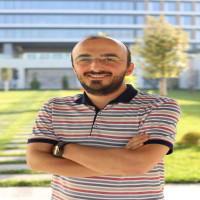
İsa Yılmaz holds a bachelor's degree in Economics and Management from Istanbul Bilgi University and participated in the University of London double degree program, receiving academic guidance from the London School of Economics and Political Science (LSE). He pursued his master's degree in Islamic Finance at the University of Durham (UK) and completed his Ph.D. in Islamic Finance from the same institution. Currently, he serves as an associate professor in the Economics Department at Istanbul Medeniyet University. He has published several academic papers on economic development, financialization and aspects of political economy in Islamic economics. In a broader context, he explores alternative economic and financial systems that strive to envision authentic models with positive developmental and welfare outcomes for emerging economies. To explore these areas, he engages with the literature on the moral economy, political economy, philosophy of economics, and alternative banking and financial models.
Dr. Kamola Bayram stands as an esteemed Associate Professor, acknowledged for her profound mastery within the realm of Islamic Economics and Finance. Presently holding a prestigious position within the Department of Islamic Economics and Finance at KTO Karatay University in Konya, Türkiye. Her remarkable journey encompasses a tenure as an Assistant Professor at the IIUM Institute of Islamic Banking and Finance (IIiBF), coupled with a pivotal role as a Project Director at the International Council of Islamic Finance Educators (ICIFE). Dr. Bayram's impact traverses international boundaries, evidenced by her instrumental training sessions in Islamic Finance across diverse regions, including Malaysia, Indonesia, and the Philippines. Her scholarly footprint covers a wide spectrum of articles and chapters, encompassing themes such as Islamic Economics and Finance Education, Islamic Social Finance, Islamic Capital Markets, Wealth Management, Behavioral Finance, and Portfolio Management. Dr. Kamola Bayram as an eminent authority within the discipline, illuminating her as a trailblazer in Islamic Economics and Finance.
Assoc. Prof. Madiha Riaz is currently working as Assoc.Professor at the Department of Economics, The Islamia University of Bahawalpur. She has accomplished a Master's in Applied Econometrics from Monash University Australia and Ph.D. from Universiti Sains Malaysia. She is a gold Medalist for a Master in Economics and also attained several scholarships during her academic career. Her interest in Econometrics has boosted her skill in Analysis. She is the author of 50 Research Articles in different National and International Journals. She has presented her RESEARCH WORK at several international Conferences. She is also serving on different Editorial boards for academic Journals.

Mervan Selçuk graduated from the Business Department of Istanbul University in 2014. He received his MA and Ph.D. degrees from Islamic Economics and Finance Department at Sakarya University in 2016 and 2021, respectively. His doctoral dissertation is about the feasibility of a monetary union in Islamic countries. He was a visiting researcher at Kuwait University between November 2018 - May 2019. Since 2015, Assoc. Prof. Selçuk has been a research assistant at the Research Centre of Islamic Economics and Finance, Sakarya University. His research areas include Islamic economics, monetary unions, and cryptocurrencies.
Dr. Mohamad Husam Helmi is an Assistant Professor of Economics and Finance at Rabdan Academy, Abu Dhabi, United Arab Emirates. Prior to his current position, Dr. Helmi served as the Programme Director for the BSc Finance program at Durham Business School. He obtained a PhD in Economics and Finance from Brunel University London (UK). His research interests lie primarily in Islamic finance, Monetary policy, and FinTech. He has published in quality journals such as the Journal of International Financial Markets, Institutions & Money, the International Journal of Finance & Economics, and the Annals of Operations Research, among others.
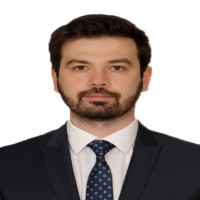
Murat Yaş Marmara Üniversitesi İslam Ekonomisi ve Finansı Enstitüsü'nde Dr. Öğretim Üyesi olarak görev yapmaktadır. Ayrıca Japonya'da Sophia Üniversitesi Asya, Afrika ve Ortadoğu Çalışmaları Enstitüsü'nde Ziyaretçi Araştırmacı olarak bulunmuştur. Yüksek Lisans ve Doktora eğitimini Malezya'da INCEIF Üniversitesi'nde İslami Finans alanında tamamlamış ve lisans derecesini Ekonomi alanında Boğaziçi Üniversitesi'nden almıştır. Ayrıca, İngiltere'de Reading Üniversitesi'nde ICMA Centre’da ziyaretçi yüksek lisans öğrencisi olarak bulunmuştur.
Araştırma alanları finansal piyasalar, İslami finans ve Asya çalışmalarıdır.

Dr. Güney graduated from the Faculty of Theology at Selçuk University in 2003. He began his academic career as a research assistant in Islamic Law at the same faculty in 2005. In 2006, he completed his Master's thesis in Islamic Law, and in 2013, he finished his doctoral dissertation on Islamic law of obligations. While pursuing his PhD, he also graduated from Anadolu University with a degree in Economics through the Open Education program.
Dr. Güney has served as a visiting researcher at Columbia University in New York for one year in 2009 and at the Islamic Research and Training Institute (IRT) in Jeddah for two months in 2018. He was promoted to Associate Professor in 2020. He currently serves as a faculty member in the Department of Islamic Law at Necmettin Erbakan University and also teaches as a visiting faculty member in the Department of Islamic Economics and Finance at KTO Karatay University.
Nur Dhani Hendranastiti is currently a lecturer and researcher at the Department of Management and is currently the Director for Undergraduate Program in Islamic Business Faculty of Economics and Business Universitas Indonesia. She received her doctoral degree in Islamic Finance (2020) and master degree in Islamic Finance (2015) from Durham University, and completed her bachelor degree in Economics majoring in Management (Finance) from Universitas Indonesia (2012). Her research interests are related with Islamic finance and banking, financialization, environmental issues, degrowth, and MSMEs.
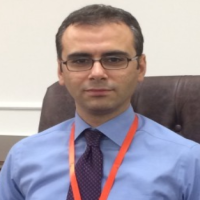
Omer Faruk Tekdogan is an Associate Professor at the Institute for Islamic Studies, Social Sciences University of Ankara. He received his BA degree in business administration from İstanbul University and his master’s degree in economics from North Carolina State University. He completed his Ph.D. in Islamic Economics and Finance, at İstanbul University. Previously, he worked as Head of Department at Directorate General of Economic Programs and Research in the Ministry of Treasury and Finance, and as Policy Analyst in the Organization for Economic Co-operation and Development. His research interests include Islamic economics and finance, monetary economics, banking, financial economics, and agent-based modeling.
Dr. Salah Alhammadi is a distinguished academic with extensive expertise in Islamic economics and finance. He earned his bachelor’s degree and MBA in economics from the University of Texas (USA), doctoral degree from the University of Reading (UK). Dr. Alhammadi is member of faculty of Economics and Finance at the Arab Open University. Dr. Alhammadi served as Lecturer and subsequently, Senior Lecturer in Islamic Economics and Finance at ALM College Dundee (UK). He also served as the MSc Program Coordinator for the Professional Diploma in Islamic Economics and Finance and supervised PhD and MSc students. Dr. Alhammadi research contributions in Islamic and conventional Economics and Finance have been showcased at various national and international conferences. He has published numerous academic articles in esteemed international journals and contributes as a referee for leading ABS peer-reviewed publications. Dr. Alhammadi is also honoured as a Fellow of the Royal Society of Arts (FRSA) and a Fellow of the Higher Education Academy (FHEA).
Salman Ahmed Shaikh holds a Ph.D. in Economics from the National University of Malaysia. He has published research papers in top international journals; presented research papers in conferences held in Malaysia, Turkey, Brunei, Indonesia, Japan, and Pakistan; and has also contributed several book chapters in books published by Routledge, Springer, Palgrave, Edward Elgar, and Gower Publishing. He is also on the Editorial Advisory Board of several research journals. Furthermore, Emerald editorial team selected two of his papers for two separate journals as Highly Commended Paper in the 2018 Emerald Literati Awards. He also won a paper prize in the World Islamic Finance Forum in 2018. He is also co-author of the book “Introduction to Islamic Banking and Finance: An Economic Analysis” published by World Scientific Press in 2020. He has worked on several consultancy projects for AAOIFI Bahrain, Institute of Policy Studies Pakistan, Edbiz Consulting UK, Bankers Academy the USA, and Asian Development Bank. His interest lies in Economics, Finance, and the role of faith in the post-modern scientific age. His most recent book is “Reflections on the Origins in the Post Covid-19 World”.
Dr. Shabeer Khan is an accomplished academic currently serving as an Assistant Professor at the College of Business, Al-Yamamah University, Saudi Arabia. Before this, he held the position of Assistant Professor and Head of International Relations at the Department of Islamic Economics and Finance, Sakarya University, Turkey, and also served as an Assistant Professor at the Department of Business Administration at Sukkur IBA University, Pakistan. Dr. Khan began his career as a Lecturer at Kohat University, Pakistan, and subsequently gained valuable research experience as a Research Assistant at INCEIF University Malaysia. Dr. Khan's impressive academic journey includes attaining a Ph.D. in Islamic Finance from INCEIF, Malaysia, a Master's degree in Economics, a Postgraduate degree in Shariah (Islamic Jurisprudence), and an MS degree in Social Science from Pakistan. He is highly regarded in the field of Islamic finance and economics and contributes actively to the industry. Dr. Khan is a Certified Shariah Advisor and Auditor (CSAA) from AAOIFI Bahrain, a registered Shariah Advisor with the Security and Exchange Commission of Pakistan (SECP), a Shariah board member at Tayyib Advisory UAE, and a Shariah advisor at KalPay Financial Services, Pakistan, and Muawin, Pakistan. Additionally, he plays a pivotal role as a trainer and consultant with ifintel, Malaysia, where he imparts expertise in advanced econometric models, data analytics, and Islamic banking and finance. Dr. Shabeer Khan's dedication to research is evident through his publications in esteemed journals such as the International Journal of Finance & Economics, the International Journal of Emerging Markets, the Journal of Economic Studies, Energy Reports, and Climate Change Economics, etc. and his participation in national and international conferences such as Sustainable Development Financing and the Role of the Financial Sector in the GCC Region, University of Cambridge, Bulletin of Monetary Economics and Banking, Bank Indonesia (Central Bank of Indonesia), Asia Economic Community Forum, Korea and 12th Foundation of Islamic Finance Conference (FIFC), Turkey, etc. His research areas span Islamic Banking, Islamic Capital Markets, Islamic Social Finance, Renewable Energy, and Informal Economy, showcasing his commitment to advancing knowledge and innovation in these domains.

SHIFA MOHD NOR, Ph.D., is a senior lecturer at the Centre for Governance, Resilience and Accountability Studies (GRACE), Faculty of Economics and Management, University Kebangsaan Malaysia. Currently, she is also affiliated with the Institute of Islam Hadhari, Universiti Kebangsaan Malaysia as an associate fellow. She obtained a degree in Business Administration (Honors) from International Islamic University Malaysia and then pursued her Master’s degree in Islamic Banking, Management, and Finance at Loughborough University, UK, and finally, she was awarded a Ph.D. from Durham University, UK. Her research interests are related to social responsibility, ethics, sustainability, and Islamic social finance. Currently, she is also actively researching Fintech and Zakat.
Assoc. Prof. Taha Egri is currentlyis the Head of the Department of Economics at Kırklareli University, Turkey. He completed his BA at Bogazici University, Turkey, and obtained his MA and PhD degrees at Istanbul University, Turkey. He was a visiting scholar at George Mason University, USA, between 2014 and 2016. His primary research areas are institutional economics and international political economy. He is currently focusing on MENA countries' economic policies, military-economic relations and Islamic economics. He is the editor of two peer-reviewed journals: the Journal of Humanity and Society and the Turkish Journal of Islamic Economics.
Dr. Taslima Julia is a Academic Coordinator and Faculty at Bangladesh Institute of Islamic Finance (BIIF). She had completed her PhD in 2020, from the IIUM Institute of Islamic Banking and Finance, IIUM, Malaysia. She had completed her second master’s degree, MSc in Islamic Banking and Finance from the same Institution in 2016. She had completed her first master’s degree in Business Administration from Trinity University, Delaware, USA, in 2004 And Bachelor of Business administration from Heriot-Watt University, Edinburgh, Scotland, UK, in 2002. The concentration of her study was in Finance but currently her study focus is on Islamic Banking and Finance. She has more than eight and half years teaching experiences at different private universities of Bangladesh. She worked at Green University of Bangladesh as an Assistant professor and Program coordinator of MBA program form June 2011 to January 2014. She started her teaching career as a lecturer at Victoria University of Bangladesh from June 2005 to May 2006, after that, she joined to Primeasia University in June 2006 and served the university for five years. Dr. Taslima Julia has twenty published articles in different renowned national and international peer reviewed journals and conference proceedings. Some of her works are under review process with different international peer reviewed journals. Her current field of interest is Green finance, Sustainable development, Maqasid-al-Shariah as well as Islamic Social Finance.
Dr. Waqas Mehmood is working as lecturer in the School of Accounting and Finance, Faculty of Business and Law at Taylor’s University Malaysia. Holding a PhD from the esteemed School of Economics, Finance, and Banking at Universiti Utara Malaysia, an AACSB-accredited university. Dr Mehmood is widely recognized for his expertise in investment finance, corporate finance and economic development. His research interests are extensive, covering a broad range of areas including investment finance, corporate finance, financial reporting, macroeconomic development, and business management. His diverse research portfolio reflects his deep knowledge and passion for understanding the complexities of finance and economics. With a strong emphasis on research, Dr Mehmood has published numerous research papers in renowned journals, many of which are indexed by prestigious databases such as SSCI, ESCI, Scopus, ABS, and ABDC. His prolific output is evident from his impressive publication record, which includes 50 research papers in the last three years alone. These publications demonstrate his significant contributions to the field, particularly in addressing financial economics and socioeconomic challenges prevalent in developing markets.
She was born in Manisa. After completing secondary school in Manisa Anatolian Imam Hatip High School, she graduated from Open Education High School. Orhan, who graduated from Bahçeşehir University, Department of Economics (with full scholarship) in her undergraduate education, completed her master’s degree in International and EU Relations at Linköping University in Sweden with a Swedish Institute scholarship. Then she received her PhD in Economics from the International University of Sarajevo. Her doctoral dissertation deals with the risk analysis of profit and loss sharing instruments in Islamic banking (participation banking). She has been working at Istanbul Sabahattin Zaim University, Faculty of Business and Management Sciences since Fall 2015. The main areas of work Orhan, who received the title of associate professor in the field of banking and insurance, are comparative finance and banking, and the connection of Islamic finance and banking with the Islamic economy.

Dr. Ozat Shamshiyev is an Assistant Professor at the Social Sciences University of Ankara (Department of Islamic Economics and Finance) and the Deputy Director of the ASBU International Center for Islamic Economics and Finance (ULIFAM). He also serves as the Co-Editor of the Journal of Islamic Economics, with its Editor-in-Chief being the renowned scholar and pioneer of Islamic economics, Prof. Dr. Mabid Ali Al-Jarhi.
He graduated from the Faculty of Theology at Necmettin Erbakan University in 2013 and earned an associate degree in International Trade from Anadolu University in 2014. He completed his master’s degree in Islamic Sciences at Erciyes University in 2017 and obtained his PhD in Islamic Contract Law from Necmettin Erbakan University in 2022.
He has authored and edited several books and published numerous research papers on Islamic law, Islamic economics, and finance. He speaks English, Arabic, Turkish, Russian, and his native Kazakh. Dr. Shamshiyev is married and a father of three children.
Book Review Editor
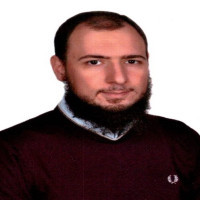
Ozan Maraşlı completed his BSc in Business Administration at İhsan Doğramacı Bilkent University in 2014 and MA in Economics at Istanbul Technical University in 2018. Then he completed his Ph.D. in Islamic Economics and Finance at Istanbul Sabahattin Zaim University in 2022. He is currently working in the department of Islamic Economics and Finance at Istanbul Sabahattin Zaim University. His fields of interest are Islamic economic institutions, Islamic economic thought, and waqf.
Secretariat


